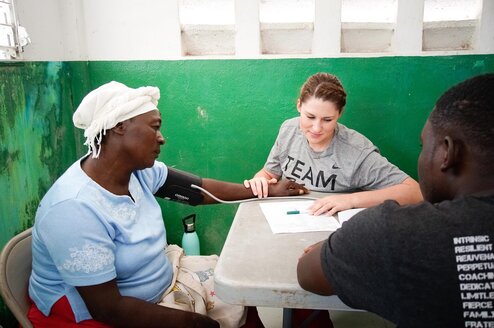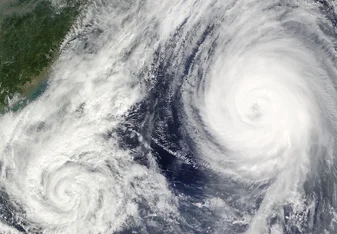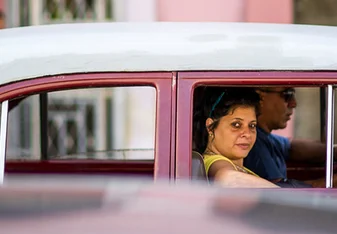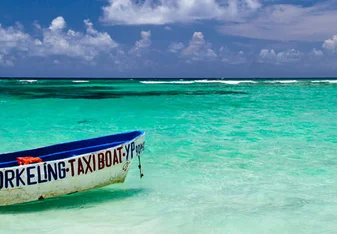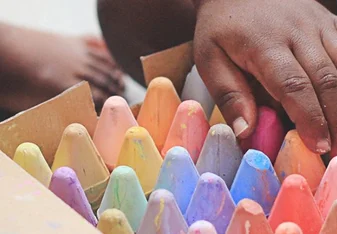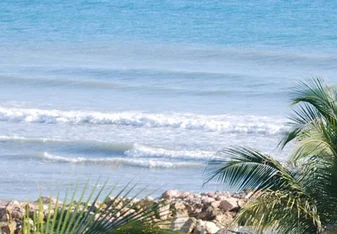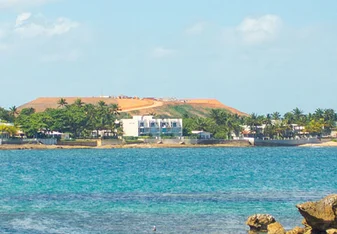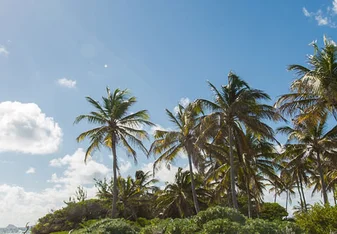Volunteer Programs in the Caribbean
Volunteer Programs in the Caribbean
Pagination
About
For such a diverse region of the world, the Caribbean tends to conjure up very specific images in most people’s imaginations: pristine beaches and rum cocktails, steel drums and colorful carnivals, luxury resorts and boatloads of cruise tourists.
All of these things are definitely part of the Caribbean culture, but they don’t give the full picture. Most Caribbean islands face a variety of environmental and socioeconomic problems, especially in areas that don’t receive profit from the tourism industry. A handful of large-scale natural disasters have also left their mark on various Caribbean islands, causing widespread devastation and much to rebuild.
Volunteering in the Caribbean is the most ethical and sustainable way of enjoying the beauty and culture of these spectacular islands. It allows you to give back to a region that has provided so many people with unforgettable memories, while also immersing you in a side of Caribbean life that most resort visitors simply don’t get to experience.
Program Types
Every Caribbean island has its own individual challenges, but many of them share the same broad social and environmental problems.
Environmental Conservation
The Caribbean islands are famous worldwide for their spectacular natural beauty and rich biodiversity. Various charitable and educational organizations across the region dedicate themselves to protecting this plant and animal life from the dangers of global warming and human interference.
Marine conservation projects in the Caribbean are particularly popular, working with sea turtles, sharks, whales, coral reefs and more. But it’s not just the wildlife that needs help: various projects aim to support abandoned pets or deliver veterinary care in poor communities where animal care is often an unjustifiable expense.
Community Development
While much of the Caribbean economy is booming thanks to tourism, this does not always extend to more remote areas far from the luxury resorts. Many projects in countries like Barbados, Jamaica, and Granada aim to solve this by working in deprived towns and villages to support economic development.
Community development volunteering can involve a variety of roles, from leading workshops to organizing events, teaching children and adults, and even carrying out environmental conservation projects within the community.
Healthcare
Standards of healthcare in some of the Caribbean’s most deprived communities can be very low due to poor infrastructure, resources, or education. Volunteers have the opportunity to improve standards of living by helping health operations in remote regions of the islands.
Your job could involve educating people on crucial health matters, distributing medicines, providing medical support, or simply helping with administration. Some roles will require medical experience, but not all of them.
Planning Your Trip
As long as you are working with a reputable volunteering organization, the main thing you will have to worry about in terms of planning will be packing your bags for the Caribbean heat.
Where to Volunteer in the Caribbean
First, you have to narrow things down to a specific country. Most islands have a developed charitable sector and plenty of volunteer opportunities, so your choice should be based on the elements that make each place unique.
Perhaps the most iconic Caribbean country, Jamaica attracts thousands of volunteers with its promise of delicious food, stunning beaches, and reggae beats. Popular volunteer opportunities include construction, community development, and journalism.
Barbados is a perennial favorite with honeymooners and cruise ships, but it’s much more than a picture-perfect beach destination. Highlights include top-notch surfing and diving, a thriving arts and culture scene, and a rich historical heritage.
The small country of Grenada is less glamorous than some of its neighbors, but no less beautiful. A bountiful island for spices and fruit, there are various volunteer opportunities in agriculture here, as well as marine conservation.
Housing & Accommodation
Most volunteering placements include accommodation in your fee. This will usually be a shared house with other volunteers in your program, which is a great way to form solid friendships during your time overseas.
The standard of housing tends to be quite good, with many projects offering stunning locations by the beach. However, you can expect accommodation to be lacking in some Western comforts such as reliable internet and hot water -- it’s not like you really need the latter in these temperatures anyway.
Language Requirement & Tips
The official language of a given Caribbean country will usually depend on its colonial history. For example, former British colonies like Jamaica, Barbados, and the Bahamas speak English, while Haiti, a former French colony, speaks French.
In most islands, a creole dialect, blending the official language with local variants, is most commonly spoken. The main exceptions are the Spanish-speaking islands such as Cuba, the Dominican Republic, and Puerto Rico, where the common language isn’t too different from the Spanish spoken in Latin America.
Packing Tips
You won’t be surprised to learn that the Caribbean is hot, so pack for warm temperatures. Don’t forget your sunglasses, hat, and plenty of sunscreen.
Most cultures are not particularly conservative, but you should still aim to dress with a certain level of professionalism when working. If in doubt, contact your volunteering organization for advice on the dress code.
Additional Tips
The cost of living in most Caribbean countries is comparatively low, especially if most of your daily costs are covered as part of your volunteering fee.
If you are interested in traveling around the region during or after your placement, bear in mind that the tourism infrastructure is overwhelmingly tailored to luxury resort tourists. This is slowly changing, but you may still find it difficult -- not impossible -- to travel as a budget backpacker in some smaller islands.
Health & Safety
The overwhelming majority of visitors and volunteers in the Caribbean do not encounter any issues, as long as they practice common sense and follow the advice of their volunteering organization.
Health
Healthcare provision in the Caribbean depends on what island you are and how remotely you are based on each island. Areas with high expat and tourist populations usually have high-quality hospitals, while only smaller clinics may be available elsewhere. You should make sure you have health insurance with comprehensive cover before traveling, including transportation to a hospital if necessary.
Tap water is safe to drink on most islands, except for in extremely remote villages. Your volunteering organization will let you know if this applies.
Safety
A few countries in the Caribbean, such as Jamaica and Trinidad and Tobago, have a bad reputation for crime. However, foreign visitors are very rarely targeted for anything but theft and pickpocketing. Don’t carry valuables and large amounts of cash, don’t walk alone at night, and avoid specific areas known for high crime rates (e.g.: Trench Town in Kingston).
